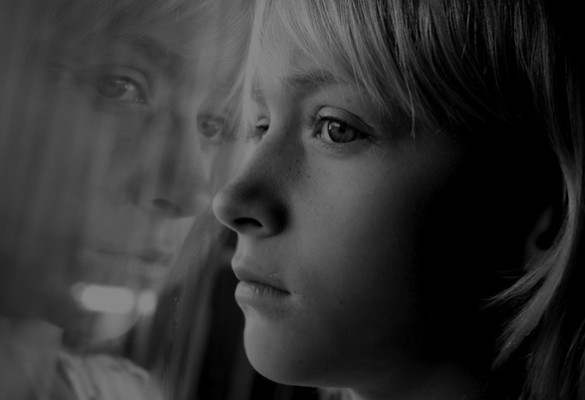It’s happened. Maybe you were afraid of this. Or, maybe it blindsided you but… it’s happened. Your daughter didn’t make the dance team. Your son was passed over for the scholarship. Your child didn’t get the part or solo or moment in the sun for which he/she worked so hard.
Now what? Your son is hurting. Your daughter comes to you crying. S/he may look to you to make it all better.

DO:
Parent your child through this setback and support them in becoming a more resilient and confident human being. When your child is faced with a letdown, you have a great opportunity to encourage your son or daughter to face and rise above the obstacles that come their way. It may not feel like a gift but it is.
DON’T:
Fix it. As a parent, your first instinct may be to try. However, just as it is a parent’s role to help his baby become proficient in feeding himself, assist her preschooler in learning to use a potty, and teach her grade-school child to tie his shoelaces, it is a parent’s often unhappy duty to give a blossoming young adult the tools they need to cope with disappointment.
That’s Life
This article from Parent magazine is meant for parents of young children. However, as I researched this issue across age groups, the methods for helping children deal with disappointment listed in the article, were corroborated. I have adapted many of them to fit the situation your pre-teen or teen dancer may be facing.
A. Gauge Your Child’s Resiliency
Does your child tend to take things personally? Does she usually have a positive outlook? This article, Helping Kids Handle Rejection & Disappointment, has a handy 5-question quiz that will help you place your child’s resiliency.
At this time, it may also be a good idea to make a mental note about how YOU feel about your child’s setback. As the above article so rightly states: “Your attitude can make a huge difference to how a child reacts. If you see rejection or disappointments as problems then your child will be hamstrung by this view.”
B. Tailor Your Tactics
When it is a BIG Deal
1. Validate the emotions.
“I know you are disappointed. It’s okay. I would be too.”
2. Help him recognize what can and cannot be changed.
What can be changed, of course, are the things regarding self, including one’s attitude. What cannot be changed are the actions and decisions of others. Despite hard work and determination and talent sometimes you just don’t get what your heart desires. It is a hard truth, but one we all learn one way or another. The difference in people is how they respond to that truth. Those that move on and continue to work hard are the ones that fulfill the adage that “if you work hard or set your mind to something, you can be anything you want to be.”
3. Redirect her attention toward something in which she is (or is likely to be) successful.
She will likely see through empty or untrue sentiments about why she was unsuccessful or how she was wronged. No matter how small, a real boost to the ego will be much more effective. What comes easily to her that doesn’t for everyone? What has she been recognized for in the past? What activity might be more suited for her qualities and talents?
4. Don’t punish or belittle his negative reaction.
After all, everyone needs to let it out sometimes.
5. Offer choices or alternatives
Help her realize that though she didn’t make the team or get the part she wanted, that she still gets to dance. She has the freedom to take some extra classes elsewhere, or in another style, or during a summer workshop. These are things that may improve her chances next time but, more importantly, they will strengthen, improve, and challenge her. Alternatively, she may have time to spend on favorite activities or pursue other interests outside of dance. Ask what she wants to do now. How does she want to proceed from here? What can be most disruptive about disappointment is the feeling of having no control over a situation. Choice can help your child regain that feeling of having a say.
6. Put it in perspective
Volunteer at a hospital, help her organize a dance performance at a nursing home, work together at a soup kitchen, walk for charity. Find or do something that helps your child recognize how fortunate they are and reduces her “big deal” to its proportional size in the scheme of things.
7. Let her solve it on her own.
Once again, resist trying to fix things. Even if she wants you to come to her rescue, resist the urge to pacify her hurt by taking action or dwelling upon things that cannot be changed (a studio director’s decision, the reality of another child’s skills or talent, the criteria for recognition by another…). This is not easy but children are often more resilient than we give them credit. Though kids of all ages may be quick to dramatize their displeasure, many bounce right back. Look carefully at your child for cues, don’t bring up their disappointment if, by the next day, all seems right with the world again. Accept that your child may have recovered more quickly than you have!
Want more coping methods? Try How To Overcome Disappointment
Your good example will make a world of difference
Watch what you say: “I’m sorry you didn’t get 1st place at the competition. What did the 1st place team do well? What do you think you’ll work on for next time?” (What to avoid saying: “I can’t believe you didn’t win! You were the best dancer there! The judges are clueless.” or “Next time you need to point your toes. Your pirouettes were the worst I’ve ever seen you do. What were you thinking?’)
Tell what you did: Share your experiences with disappointment, what you learned from them, where failures led you, how you felt and what you did to overcome.
Be careful what you do: How do you react when you face disappointment or failure or frustration? Do you throw a tantrum at the checkout when the clerk makes a mistake? Do you gripe about your boss when you don’t get a promotion? Do you quit when the going gets rough? Behavior like this sends a message to your child.
When to step in
Is there a time when you should step in to solve something for your child? My short answer is almost never.
If you feel like you absolutely must act on his/her behalf, you may want to read How to Discuss Problems With Your Studio Director and Be Heard.
When it comes to decisions about roles or teams, however, it is important to realize that work ethic and even abilities are not the sole criteria from which directors cast their shows or teams. You may disagree with the specifications but it is within a director’s right to select and judge based upon a standard of his/her choosing.
You might approach him with a desire to know and understand his process but demanding he defend a decision does not put you or your child at an advantage. (Think about it: How or under what circumstances would you demand this of a prospective employer that passed you over for a job? What about your current employer if you were not selected for promotion?)
When your son/daughter receives a “no thank you,” your goal is to gain understanding so that you might help your child cope with the decision. The director will see through attempts of getting your child on the team or winning your dancer that role if that is your underlying ambition and you’ll hit a roadblock if it is.
When hard work doesn’t pay off
(I’ll repeat) Occasionally, despite hard work and determination your child may not always get what her heart desires. It is a hard truth, but one we all learn one way or another. The difference in people is how they respond to that truth. You and your child both must accept this truth and look for the positive in every disappointment.
In addition, when it comes to hard work, attitude, or any other virtue, what a person deserves is not always what he will get. Thank goodness I don’t always get what I deserve because sometimes I don’t deserve what I get!
Accomplishments ≠ Who We Are
It is sometimes easy to confuse our accomplishments and awards with who we are. In our culture we place a lot of emphasis on the achievements for which a person has been recognized – she is a two-time Olympic medalist; he is a famous actor who has won numerous stage and screen awards. These things say little of who a person really is. In addition, these recognitions only look back never forward.
Who is this dancer becoming?
In children especially, where one is going should matter a whole lot more than where one has been. Accomplishments and met goals are how we develop self-confidence in our abilities, however, we are not defined by our achievements. In fact, often we are shaped more by our failures. They are a good test of how badly we want something. They can also set us on new, more appropriate paths. It is despite and sometimes because of obstacles or disappointments that we become a dancer, a doctor, or something completely opposite but all the more right than whatever it is we want (or wanted) to be.
What disappointments have you or your child faced recently?
How did you deal with them?
Nichelle Suzanne is a writer specializing in dance and online content. She is also a dance instructor with over 20 years experience teaching in dance studios, community programs, and colleges. She began Dance Advantage in 2008, equipped with a passion for movement education and an intuitive sense that a blog could bring dancers together. As a Houston-based dance writer, Nichelle covers dance performance for Dance Source Houston, Arts+Culture Texas, and other publications. She is a leader in social media within the dance community and has presented on blogging for dance organizations, including Dance/USA. Nichelle provides web consulting and writing services for dancers, dance schools and studios, and those beyond the dance world. Read Nichelle’s posts.

![Reblog this post [with Zemanta]](https://img.zemanta.com/reblog_e.png?x-id=0495925d-a22b-4ac9-a2ce-144965481b50)
